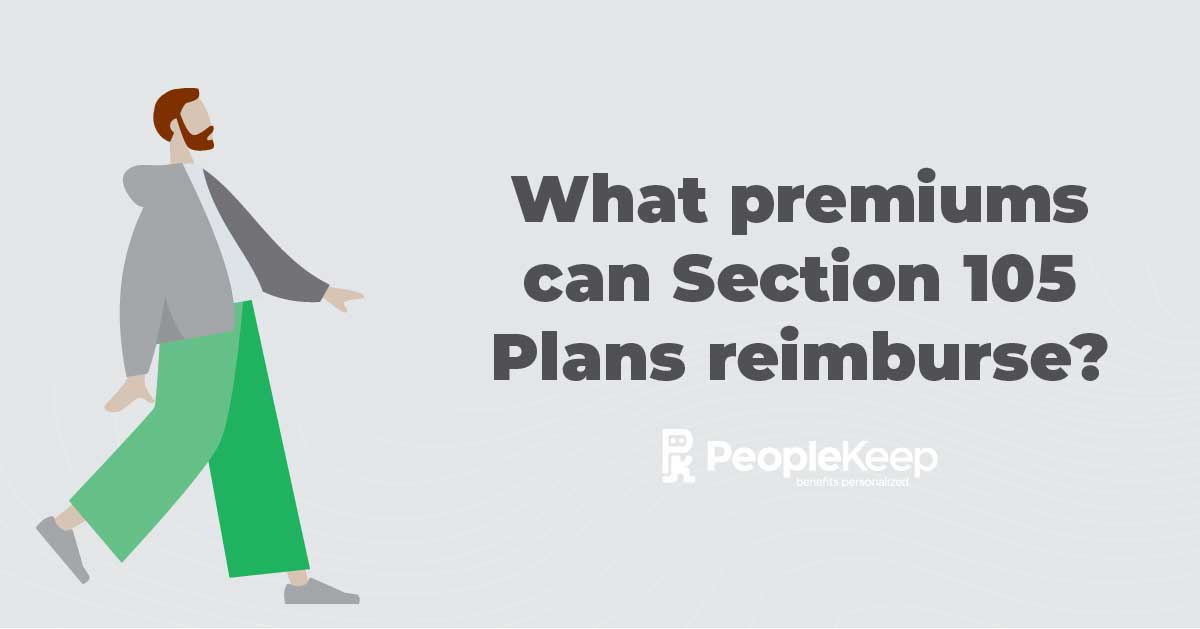FAQ: Can We Reimburse Employees' Subsidized Exchange Premiums?
By Christina Merhar on November 22, 2013 at 7:00 AM
A common question from employers is "can we reimburse employees' subsidized exchange premiums?" The answer is yes. According to current regulations employers can use a limited-purpose Section 105 Medical Reimbursement Plan, sometimes called a Healthcare Reimbursement Plan (HRP), to reimburse employees for their qualified health insurance premiums, including the unsubsidized portion of individually-purchased subsidized exchange policies.
Background on HRPs, Individual Health Insurance, and Health Reform
As employers plan their health benefits strategy for 2014 and beyond, many are looking at ways to incorporate the advantages, and cost savings, of individual health insurance, the health insurance exchanges, and the individual health insurance tax subsidies. Others are just tired of group health insurance, or have never been able to afford it. One of the strategies growing in popularity is setting up an HRP to reimburse employees for their eligible health insurance expenses. This type of health benefits strategy is also called a "pure" defined contribution approach because the employer provides a healthcare allowance instead of a traditional group health insurance plan.
Using HRPs to Reimburse Subsidized Exchange Plans
IRC Section 105 is the foundation of employer-sponsored medical reimbursement plans, including an HRP. Section 105 of the IRS Code allows employers to reimburse an employee for medical and insurance expenses incurred by the employee or his or her dependents. A Section 105 HRP is designed to be compliant with ACA, ERISA, and HIPAA regulations and is different than a Section 125 "Cafeteria" plan and Health Reimbursement Arrangement (HRA).
Employees can use the employer-funded HRP to reimburse the nonsubsidized premium of their individually purchased, exchange-based policy.
The Affordable Care Act (ACA) does not allow employees to use a Section 125 cafeteria plan to pre-tax an individually purchased, exchange-based plan.
ACA Guidelines for Section 105 and Health Insurance Exchange Plans
According to the Affordable Care Act (ACA) regulations:
(1) Government-subsidized portion of medical premiums (if applicable) is not tax deductible See PPACA Section 1401 adding Section 36(B)(g) to Subpart C of part IV of subchapter A of chapter 1 of the Internal Revenue Code of 1986: "(g) Credit for Health Insurance Premiums- No deduction shall be allowed for the portion of the premiums paid by the taxpayer for coverage of 1 or more individuals under a qualified health plan which is equal to the amount of the credit determined for the taxable year under section 36B(a) with respect to such premiums")
(2) Unsubsidized portion of medical premiums are tax deductible. However, plans in AHBE exchanges are not qualified benefit under Section 125 See PPACA Section 1515 "OFFERING OF EXCHANGE-PARTICIPATING QUALIFIED HEALTH PLANS THROUGH CAFETERIA PLANS." This section specifies that exchange plans will not be a qualified benefit under Section 125.
(3) The Section 125 exclusion does not apply to:
1. Section 105 premium reimbursements for unsubsidized portion
2. HSA (e.g. when unemployed) premium reimbursements for unsubsidized portion
3. 1040 Schedule A deduction for premium expenses over 10% of income
Check out more resources
See these related articles

Health Care Reimbursement Account - What is it?
Health Care Reimbursement Account. What are health care reimbursement accounts and how to reimburse premiums and medical expenses tax free.

Reimbursing health insurance premiums? You'll need an HRA
Want to reimburse employees for health insurance premiums? You'll need an HRA. Read how HRAs enable tax-free premium reimbursement while staying compliant.

What health insurance premiums can Section 105 plans reimburse?
Discusses the types of health insurance premiums Section 105 plans can reimburse.


